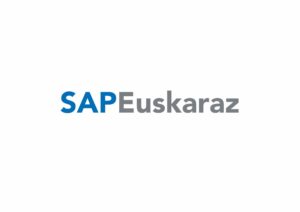Marketing Comunicación i3s
The talent management is the cornerstone of today’s organizations. Never before has there been so much talk about workplace wellness. And never before have companies made such an effort in the past to empowering the talent of your of your workforce through empathy, i.e., by responding to their needs and expectations.
Making the most of human talent: a source of advantages
Improving talent management has become a priority objective in the last five years for the vast majority of organizations. There are several reasons for this: from the need to increase the performance of work groups to the need to improve the attracting qualified profiles scarce in the labor market, retaining talent talent in the face of phenomena such as the Great Resignation o preserving the well-being of the workforce in order to increase engagement and motivation.
In short: Improve productivity ratios and worker capacity. How? From a corporate perspective. effective work management that responds to some of the main demands of professionals: better working conditions, a good working environment, flexibility and possibilities of conciliation…
Because today, more than ever, talent managementtalent management, properly understood and well focused, is synonymous with sustainability, development and growth, innovation and creativity, and the capacity for transformation and resilience.
Aligning human capabilities with corporate objectives
As we have said, the strategic talent management has become an essential lever for aligning human capabilities with corporate objectives. In fact, The HR department has taken on a very important role in business management, as the architect of this effective plan to increase organizational performance and ensure business sustainability.
Nowadays, expert profiles in people management within companies have a decisive weight in strategic decision making. Thanks to their contributions in the talent managementhave ceased to be mere administrators and have become agents of change.
But how can a company take advantage of all its human talent through good talent management? The answer is simple: by aligning the objectives of each and every one of the company’s talents with corporate goals.
There is no doubt that those who row in favor of causes that help them grow as people and professionals, row stronger.
Human talent management from a strategic approach
The talent management human resources, when approached from a strategic and systemic perspective, enables organizations to identify, develop, retain and mobilize the potential of their employees. To do so, it is key to adopt a series of fundamental practices and principles that are approached from a holistic perspective.
Strategic talent planningIt consists in anticipating the future needs of the company in terms of profiles, i.e. skills and competencies according to the strategy to be followed in the future. This makes it possible to size, recruit or develop talent from key skills, necessary, with some foresight.
Attracting talent aligned with culture and purposeA good talent acquisition process goes beyond technical competencies. Today, we are looking for people whose values and vision match those of the organization, so that they add to the development of an appropriate corporate culture.
Performance evaluation and managementContinuously measuring performance, providing constructive feedback and promoting continuous improvement is another key to the new approach to talent management that seeks to maximize the capabilities and skills of staff members.
Learning and development managementLearning and development management: Offering structured training and growth opportunities ( upskilling y reskilling The development of the company’s employees’ professional development and new opportunities for internal promotion, aligned with their individual career plans, favors retention and generates commitment. In fact, a effective talent management effective talent management enables the identification of future leaders and their development with a view to assuming key positions in the future.
Wellness and healthA company that cares for the physical, emotional and psychological health of its talent, and that fosters a positive work experience, achieves higher productivity and loyalty through healthy work environments and increased motivation.
Culture of leadership and empowermentEffective leadership is a catalyst for talent development. Well-trained leaders foster inclusive, creative and achievement-oriented environments that enable the company not only to retain talent, but also to extract the best from it, maximizing organizational performance and innovation.
Why can talent management software help your organization?
Why a talent management software can help the organization in this regard? The human talent management based exclusively on manual or fragmented processes carries risks of inefficiency, lack of traceability and missed development opportunities. Talent management software software, however, makes it possible to effectively execute this new systemic and holistic approach to talent management. talent management. It achieves this through its main advantages:
Centralization of informationCentralization of information: Gathers on a single platform the key data on the life cycle of each and every employee, from the recruitment phase to the exit phase, facilitating strategic decision making.
Process automationReduce the administrative burden by automating tasks such as performance management, training plans or 360° evaluations. And, of course, those of little added value, such as payroll or the management of corporate benefits and flexible compensation plans. This capability saves HR departments significant effort and time, allowing them to direct their energies to tasks of greater added value for the organization.
Talent visibility and analyticsProvides indicators and reports that allow you to anticipate trends, detect talent gaps and measure the ROI of HR initiatives through quantifiable, comparable, objective KPIs, etc.
Integration with other areasThis type of solution can be integrated with the company’s ecosystem, from payroll, recruitment, CRM or ERP systems to other common systems in various departments of the organization, facilitating a more holistic view of the business.
Improving the employee experienceMany of these tools offer self-management portals for employees, strengthening transparency and empowering them, as they acquire greater flexibility and autonomy in the development of training plans, consumption of flexible compensation services, etc.
Strategic decision supportThrough predictive modeling, climate analysis, rotation tracking and other intelligent tools, these softwares allow anticipating risks and planning scenarios, which improves the decision-making process based on reliable data.
In short, software for strategic talent talent management software transforms the HR function from an operational to a strategic one transforms the HR function from an operational to a strategic one, aligning human capital with organizational objectives.
Which talent management software is the most suitable?
The choice of software for talent talent management will depend on several factors such as company size, industry, budget, digital maturity and specific needs.
One of the most recognized is SAP SuccessFactors capable of bringing the employee experience to the level demanded by today’s corporations.
It is a robust and highly scalable solution, ideal for large companies, as it integrates modules for recruitment, performance, compensation, succession, learning, etc., i.e., all those necessary to address talent management. talent management from an integral and transversal point of view.
It also offers an intuitive user experience and a powerful analytics capability that combines talent talent management with finance and other business modules. In short, a high-capacity tool that integrates talent management, human capital management and workforce planning that also stands out for its adaptability.
In short, a company that wants to maximize its human talent must adopt a strategic and digitized approach to talent management. The intelligent use of specialized software not only improves operational efficiency, but also enhances the organization’s ability to attract, develop and retain key employees.
Marketing and Communication i3s





